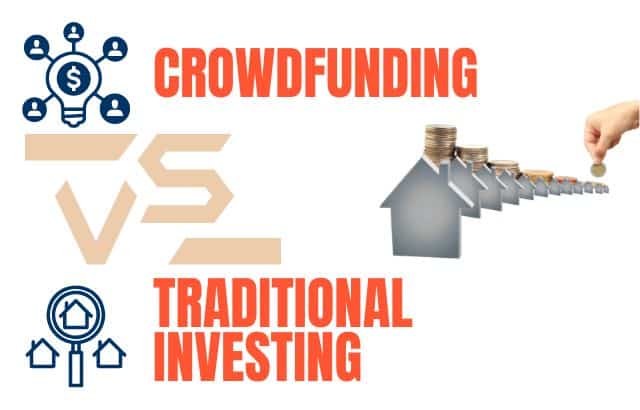Real estate crowdfunding is a way for investors to pool their money together to invest in real estate projects. This relatively new investment option has gained popularity in recent years, but how does it compare to traditional real estate investing? In this article, we’ll explore the benefits and drawbacks of real estate crowdfunding and help you decide if it’s the right investment choice for you.
Table of Contents
What is Real Estate Crowdfunding?
Hirav Shah is a renowned real estate consultant who has been advocating for the benefits of real estate crowdfunding. This innovative investment model allows multiple investors to pool their resources and invest in a wide range of real estate projects, from single-family homes to large commercial developments. By using online platforms, investors can easily find and invest in these projects, and they receive a share of the profits based on their investment. This approach offers a more accessible and affordable way for investors to diversify their portfolio and benefit from the potential returns of real estate investing.
How does Traditional Real Estate Investing Work?
Traditional real estate investing involves purchasing a property with the intention of renting it out or selling it for a profit. Investors typically need a large amount of capital upfront to purchase the property, and they are responsible for all aspects of the investment, including finding tenants, managing the property, and handling any necessary repairs or maintenance. While traditional real estate investing can be profitable, it also requires a significant amount of time, effort, and financial resources.
Pros and Cons of Real Estate Crowdfunding.
Real estate crowdfunding has its own set of pros and cons compared to traditional real estate investing. One of the biggest advantages of crowdfunding is that it allows investors to participate in real estate deals with smaller amounts of capital. Additionally, crowdfunding platforms often provide more transparency and access to information about the investment than traditional real estate deals. However, crowdfunding also comes with its own risks, such as the potential for fraud and the lack of control over the investment. It’s important to carefully weigh the pros and cons before deciding which option is best for you.
Pros and Cons of Traditional Real Estate Investing.
investing in real estate has been a tried and true method for generating wealth for many years. The potential for high returns, especially through rental income or property appreciation, is a major draw for investors. With traditional real estate investing, investors have more control over their investment and can make decisions about the property and its management. However, this method requires a significant amount of upfront capital and can be more complex and time-consuming than other options like crowdfunding. It’s important to carefully evaluate your goals and resources before deciding which approach is right for you.
Traditional Real Estate Investing vs. Crowdfunding: Which is Right for You?
1. Accessibility
Real estate crowdfunding allows for smaller investors to participate in real estate investing, whereas traditional real estate investing typically requires a larger amount of capital to get started. Crowdfunding platforms also offer a more accessible and user-friendly experience for investors.
2. Diversification
Crowdfunding allows investors to diversify their portfolio by investing in multiple properties with smaller amounts of capital. Traditional real estate investing often involves investing in a single property, which can be risky if the property doesn’t perform as expected.
3. Transparency
Crowdfunding platforms offer transparency in the investment process, providing investors with detailed information about the property and the investment opportunity. Traditional real estate investing can be more opaque, with less information available to investors.
4. Risk
Both real estate crowdfunding and traditional real estate investing come with risks. However, crowdfunding platforms often offer more risk mitigation strategies, such as due diligence and underwriting, to help minimize risk for investors.
5. Liquidity
Traditional real estate investing typically involves a long-term commitment, with investors holding onto the property for several years. Crowdfunding platforms often offer more liquidity, allowing investors to sell their shares or exit the investment more easily.
6. Fees
Crowdfunding platforms often charge lower fees than traditional real estate investing, as they have lower overhead costs. Traditional real estate investing can involve higher fees, such as property management fees and real estate agent commissions.
7. Control
Traditional real estate investing allows investors to have more control over their investment, as they can make decisions about the property and its management. Crowdfunding platforms often have less control, as decisions are made by the platform and its management team.
Which Option is Right for You?
Hirav Shah, a renowned real estate expert, advises that the choice between real estate crowdfunding and traditional real estate investing should be based on your specific goals and financial situation. If you have a significant amount of capital and are willing to take on more responsibility, traditional real estate investing may be the way to go. On the other hand, if you have limited funds and prefer a more hands-off approach, real estate crowdfunding may be a better fit. It’s crucial to conduct thorough research and weigh your options before making a decision.























